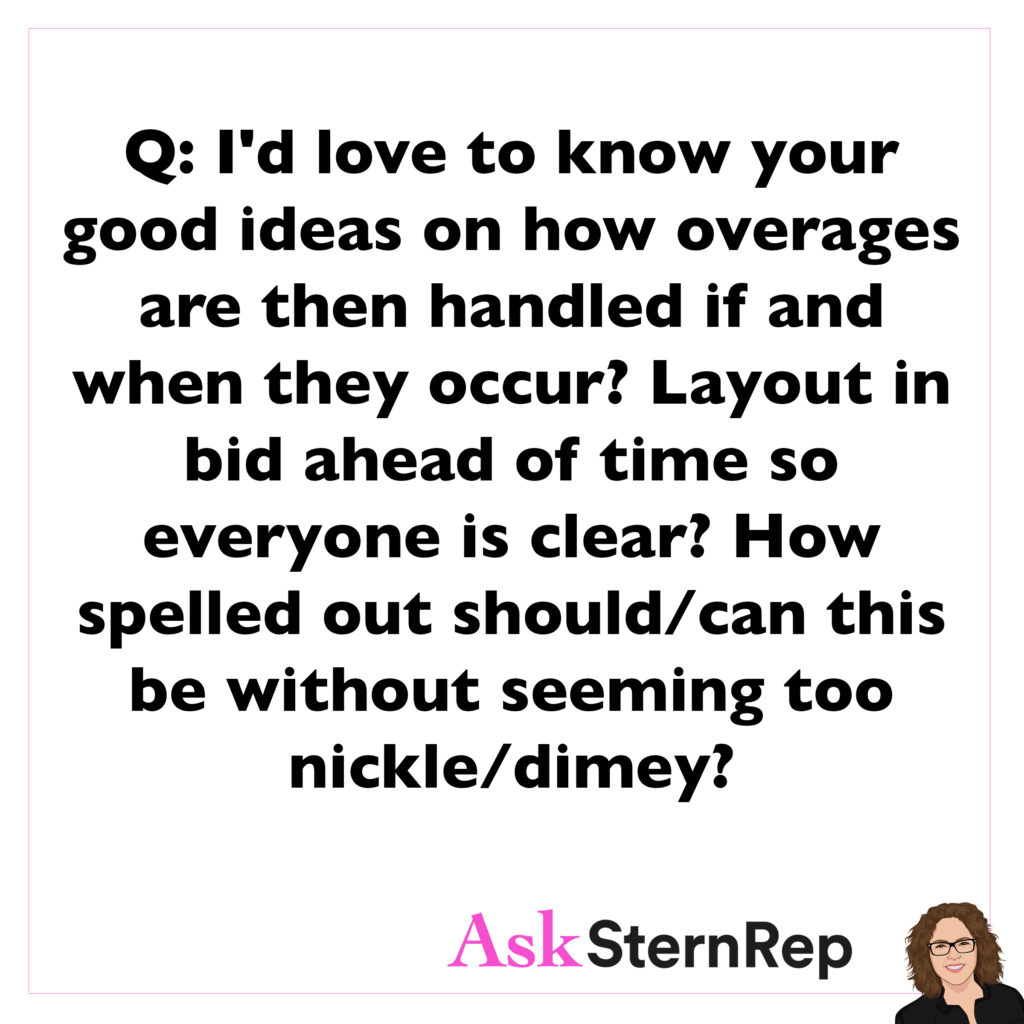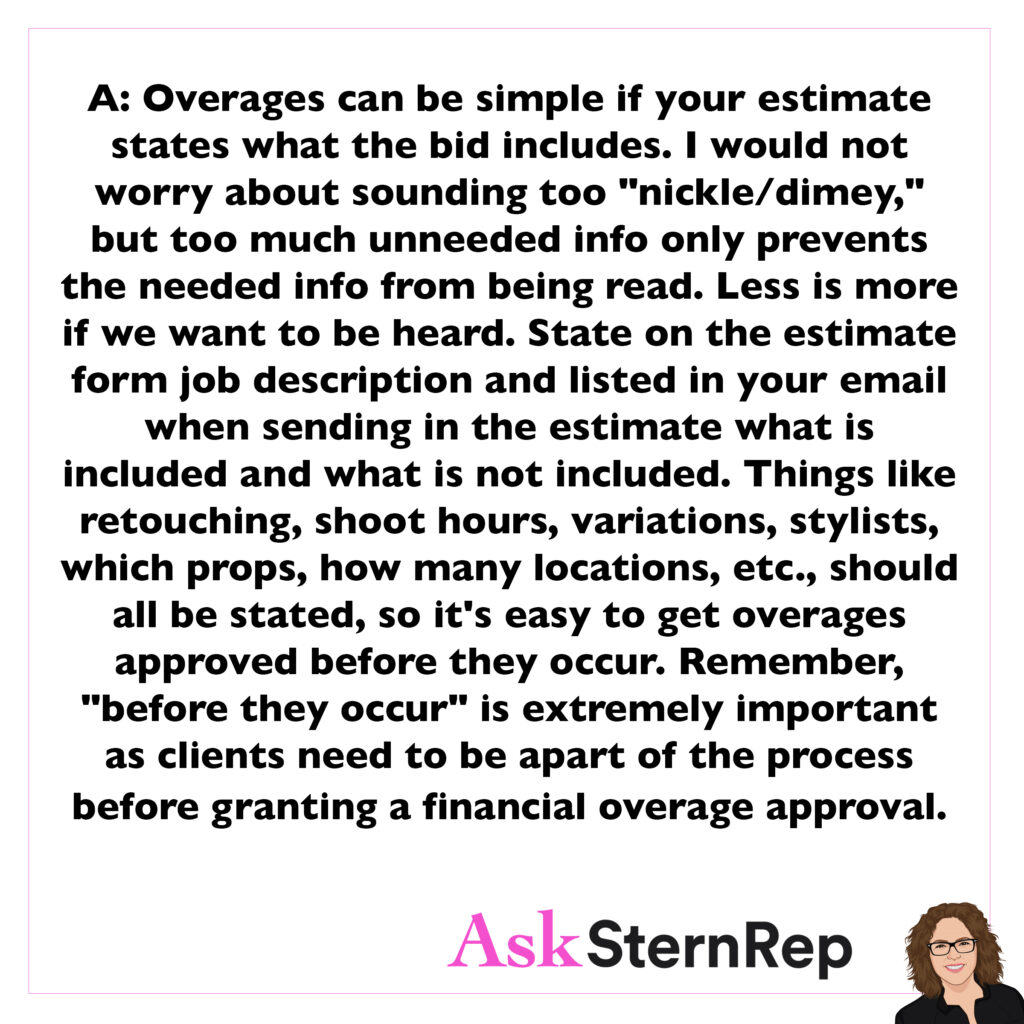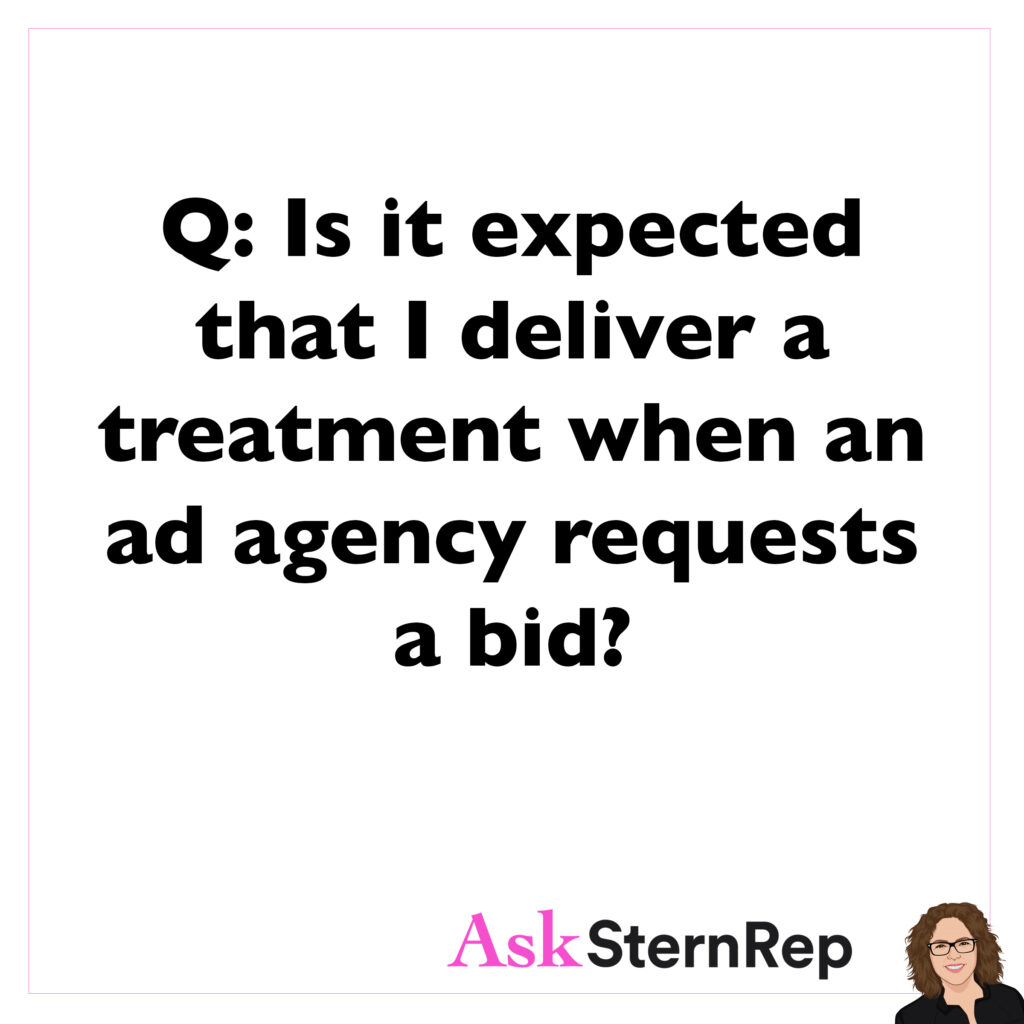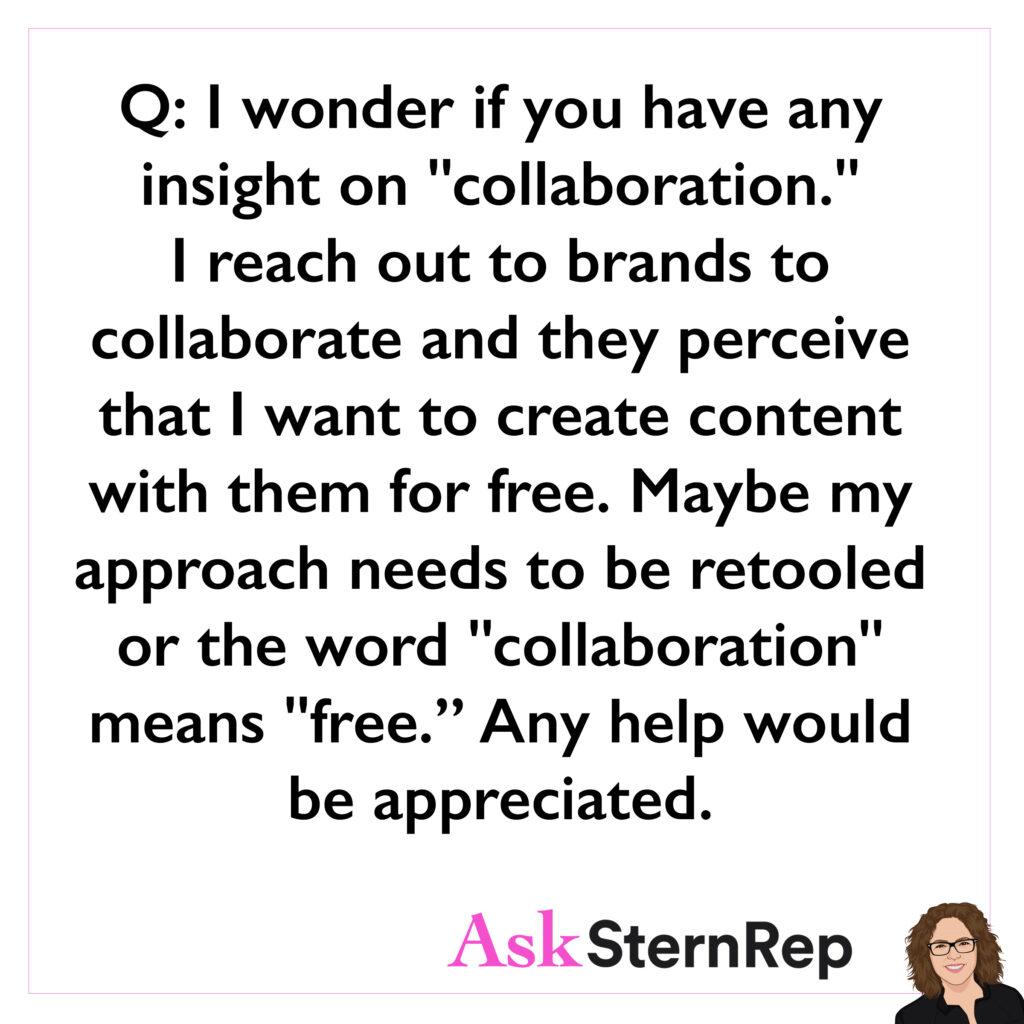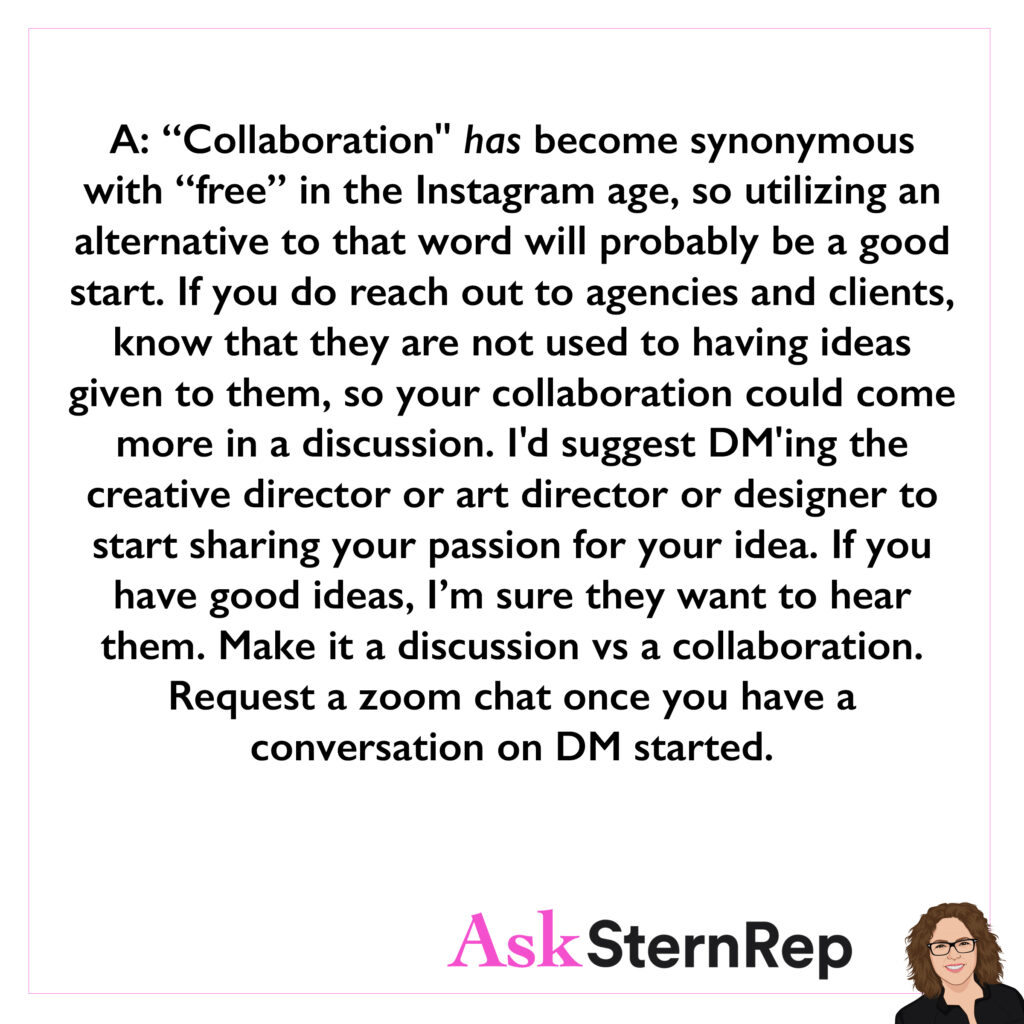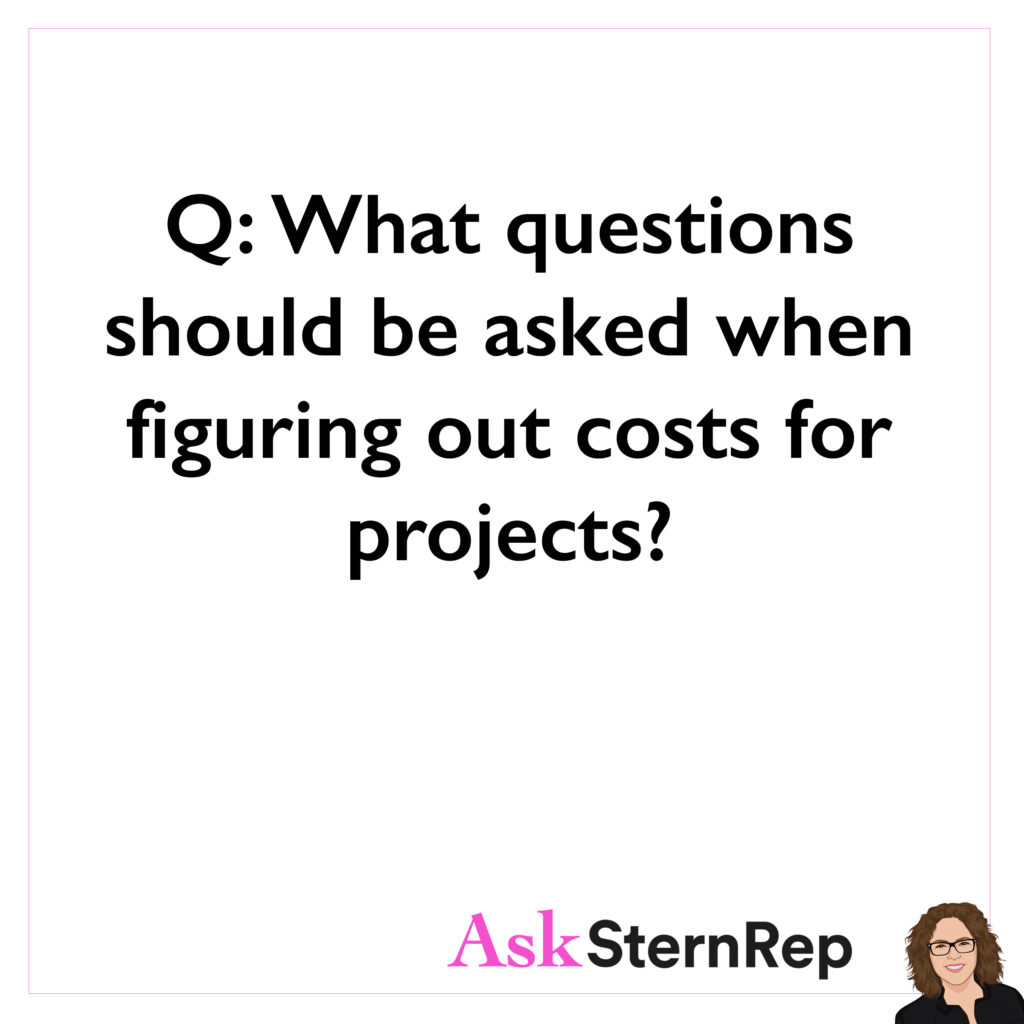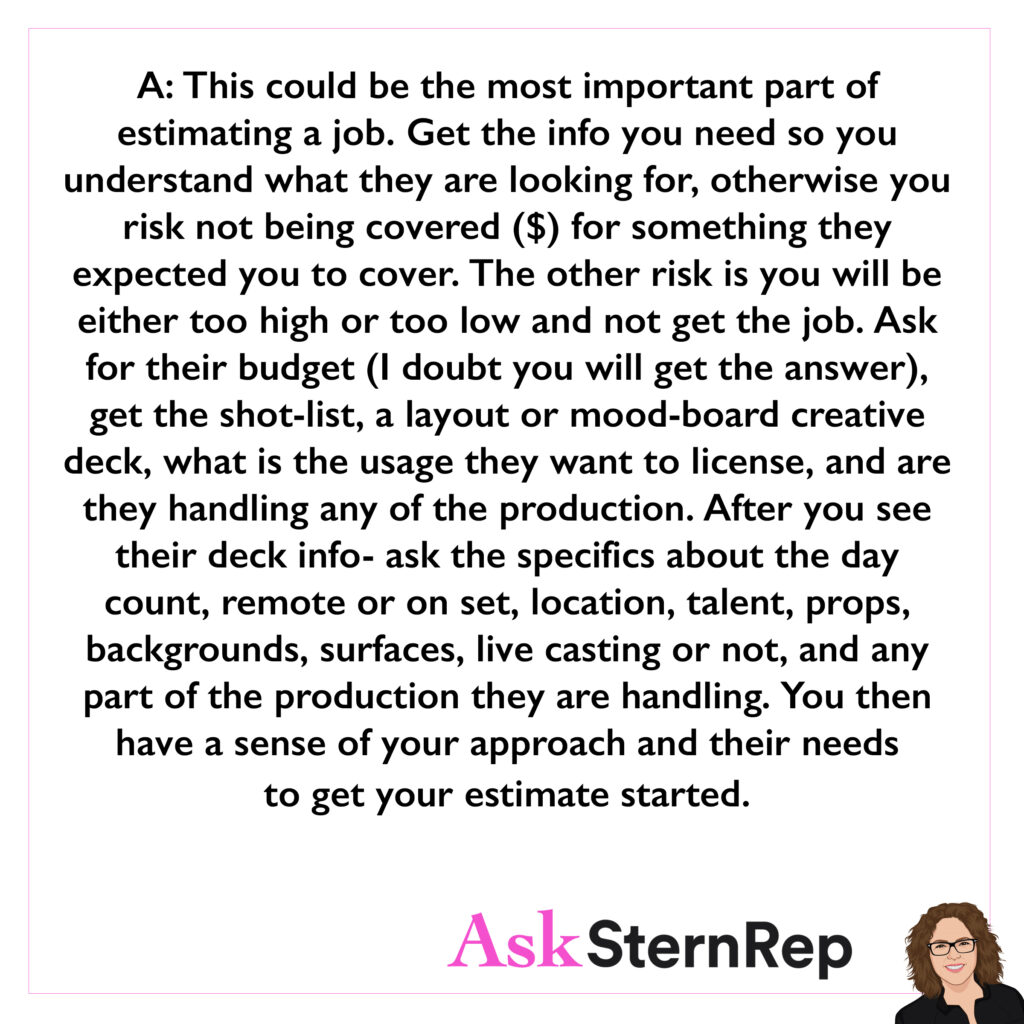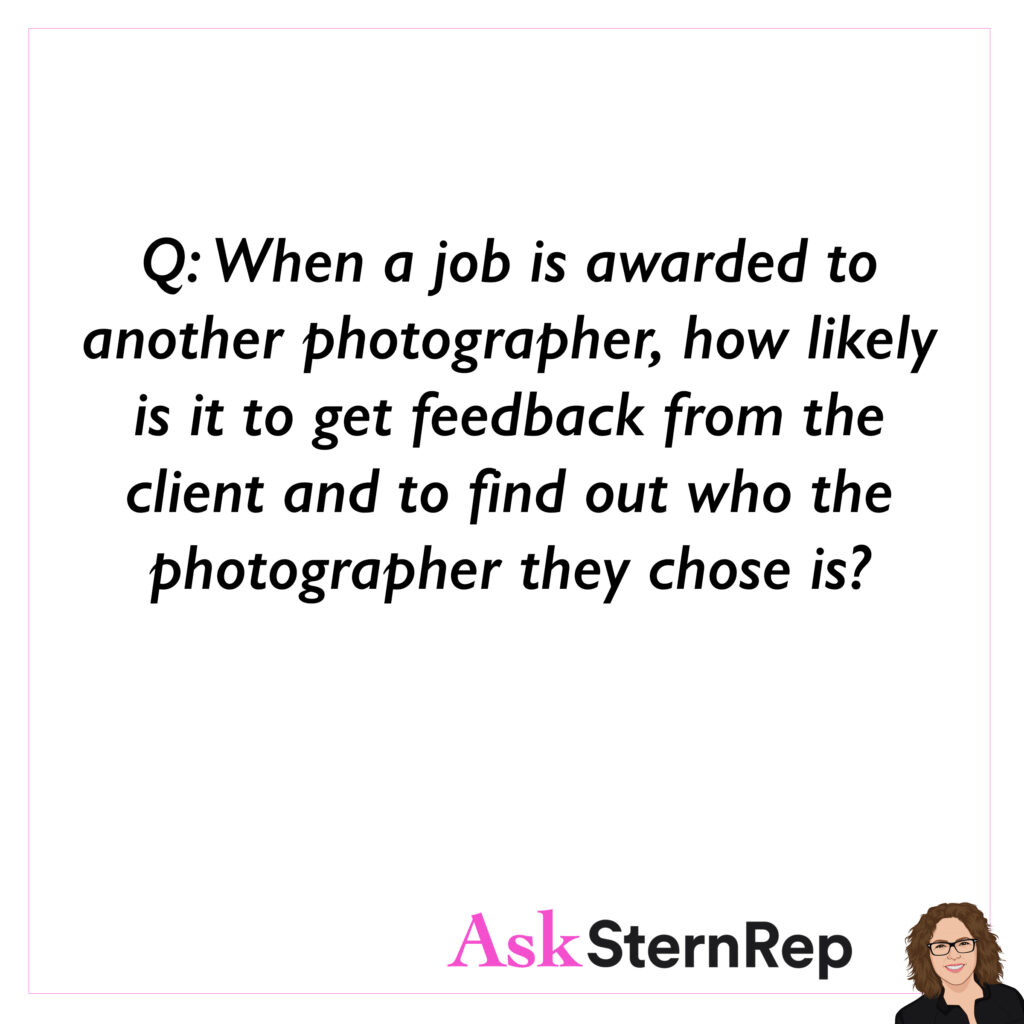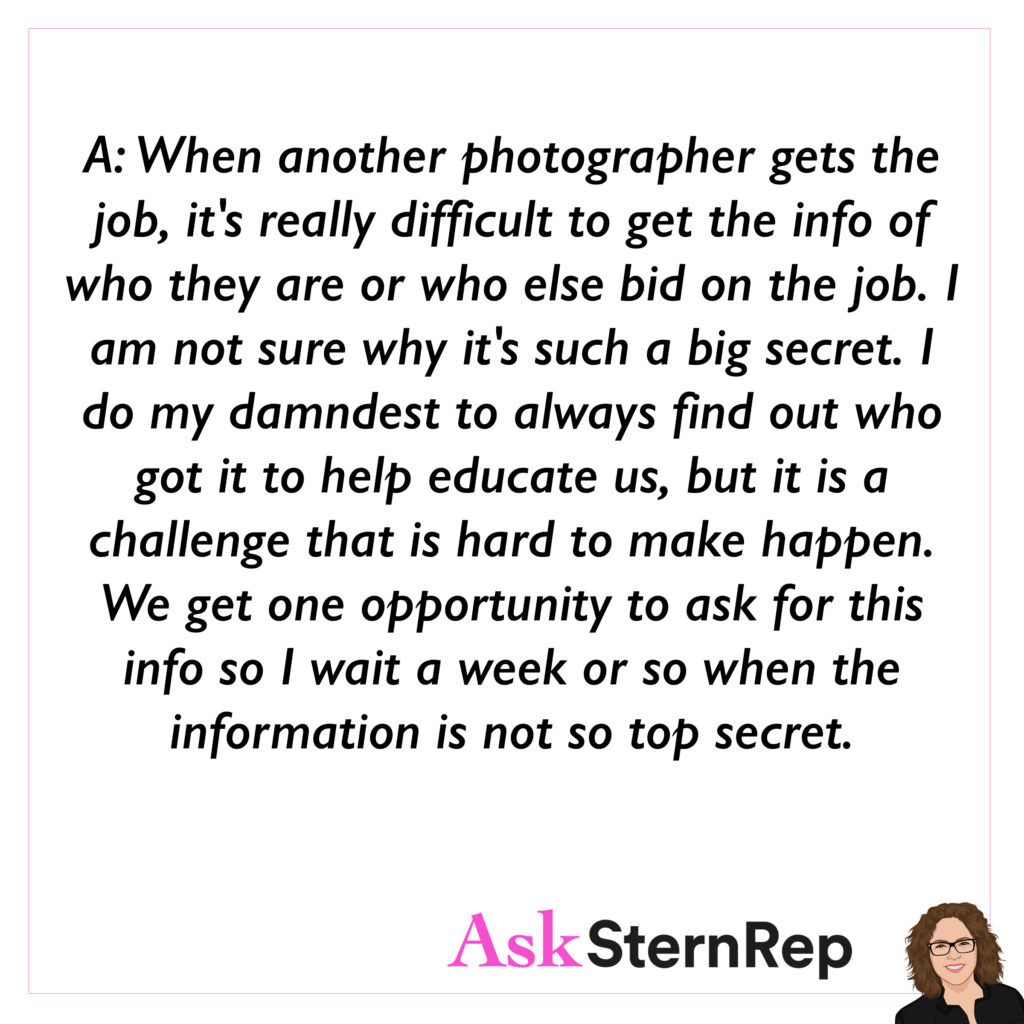When a client handles production expenses and asks for your day-rate estimate, be careful as they often assume that will include other costs such as your crew, camera gear, and retouching. Spelling that out on your estimate is not enough. Before the job happens, ask how they are handling the specific production costs that pertain to you.
Something often happens with estimates, especially when it’s from client direct. They are handling the production expenses. They ask us for a bid or an estimate just for our fees but it’s often not just our fees. They think other things are inclusive with fees. When fees are really your usage and your time, your creative fee, your day rate. Even after you think they understand because you’ve made it very clear, do it again. Make sure before the job happens that they are crystal clear if more retouching is needed or if overtime happens it’s going to be this much. Ask them how they are handling the crew, how they want to handle your equipment. Stuff like that. Assume they don’t know because you have to protect yourself even if you think you already did in the estimate.

